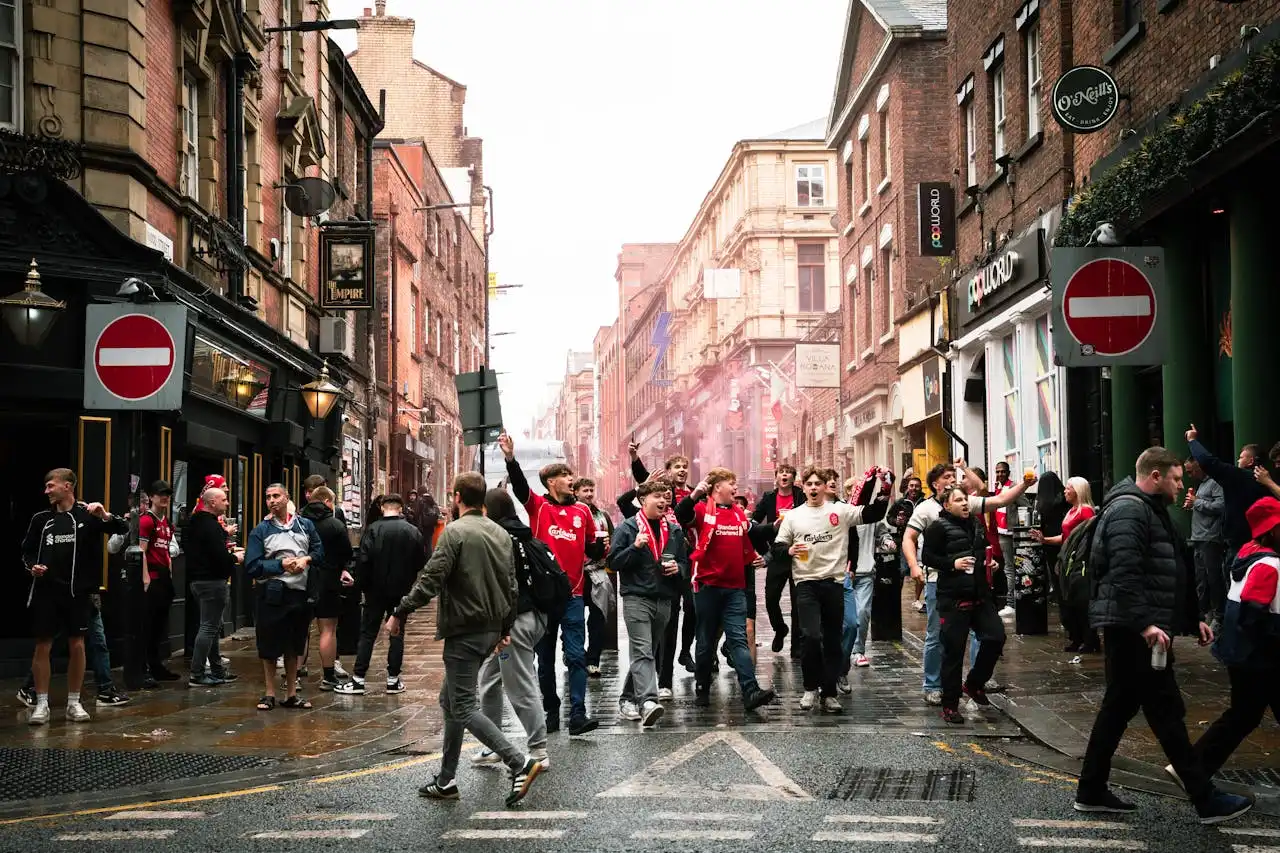One Song, One Soul: Why 'You'll Never Walk Alone' Is More Than Just an Anthem for Liverpool FC
Muhe - Friday, 18 July 2025 | 01:00 PM (WIB)


From Broadway Stage to Football Terraces: A Journey Uncharted
The story of YNWA is pretty wild, if you think about it. It certainly didn't start on a football pitch. This iconic ballad was born in 1945, penned by the legendary Rodgers and Hammerstein for their musical "Carousel." It’s sung in the musical to comfort a character grappling with the suicide of her husband. So, right from its inception, it was about solace, about finding strength in the face of unimaginable grief. Fast forward to the early 1960s, and a local Liverpool band, Gerry and the Pacemakers, covered the song. Their version shot straight to the top of the UK charts in 1963, becoming an instant smash hit. Now, here's where the magic really begins. Back in those days, Anfield had its very own DJ who would play the top ten hits before matches. YNWA was a regular on that playlist. The Kop, being the vocal, lively crowd they were, naturally started singing along. Legend has it that when the song dropped out of the charts, the fans kept singing it anyway. Bill Shankly, Liverpool's legendary manager, was reportedly so moved by the crowd's passionate rendition that he adopted it as the club's official anthem. Talk about a glow-up for a show tune, right? It wasn't just a fleeting pop song anymore; it was becoming part of the club’s DNA.Hillsborough: When a Song Became a Sacred Oath
While YNWA was already a beloved anthem by the late 1980s, its meaning was profoundly, irrevocably deepened on April 15, 1989. That day, at the Hillsborough Stadium in Sheffield, 97 Liverpool fans tragically lost their lives due to a crush during an FA Cup semi-final. The aftermath was a period of unimaginable grief, injustice, and a prolonged fight for truth and accountability. In the face of such devastating loss and the subsequent smear campaigns against the supporters, YNWA transformed from a simple football song into a solemn oath, a beacon of defiant hope. In those darkest days, and for the decades that followed, "You'll Never Walk Alone" wasn't just sung; it was lived. It became a literal promise to the victims, to their families, and to the entire community: they would not be abandoned in their grief, nor in their tireless pursuit of justice. It was sung at funerals, at vigils, at memorials, and every single match, carrying the weight of 97 lost lives and the unwavering spirit of those left behind. It cemented itself not just as a symbol of the club, but as an enduring testament to the resilience of a city, a community that refused to be broken.A Universal Message That Transcends Borders
The profound emotional resonance of YNWA extends far beyond the red half of Merseyside. While Anfield remains its spiritual home, the song has been adopted by other football clubs worldwide, most notably Celtic in Scotland and Borussia Dortmund in Germany, where fans sing it with similar fervor. But its impact isn't confined to football stadiums. It's a tune that has transcended its sporting origins to become a universal expression of empathy and solidarity. You’ll hear it played at funerals, providing comfort in times of personal loss. It’s been sung during national moments of crisis, a unifying call for strength and togetherness. People facing personal battles, from illness to hardship, find solace in its message. Why? Because its core message is pure and simple, yet immensely powerful: no matter how dire the circumstances, no matter how lonely you feel, you are not alone. There is always hope, there is always support, and there is always a way forward, hand in hand with others. It’s a powerful reminder that human connection is often our greatest strength.The Enduring Power of a Living Legacy
Today, when you hear "You'll Never Walk Alone" at Anfield or anywhere else, it's not just an anthem for a football club; it’s a living piece of history. It embodies the triumphs, the heartbreaks, the unwavering loyalty, and the indomitable spirit of a community that has faced immense adversity and emerged, together, stronger. It’s a cultural touchstone that speaks to the shared human experience of pain, hope, and resilience. It punches you right in the feels, every single time. In a world that often feels increasingly fragmented and isolating, the message of "You'll Never Walk Alone" remains as relevant and potent as ever. It's a reminder that collectivism, empathy, and sticking together through thick and thin are not just old-fashioned notions, but vital pillars of our shared humanity. So, the next time you hear those iconic words, remember it's more than just a song. It's a promise, a prayer, and a powerful testament to the enduring power of the human spirit to find light, even in the deepest darkness.
Liverpool vs Arsenal Prediction: Week 3 of the 2025/2026 Premier League
14 days ago

Rayo Vallecano vs. Barcelona Prediction: Week 3 of La Liga 2025/2026
14 days ago

Messi's Last Dance? The GOAT Hints at a Potential World Cup Farewell in 2026
15 days ago

Real Madrid vs Mallorca Prediction: Los Blancos Aim for Third Consecutive Win
15 days ago

West London Derby: Chelsea vs. Fulham Prediction, Week 3 Premier League Match
16 days ago

Manchester United vs Burnley Prediction: Tough Test at Old Trafford
16 days ago

The Roar of History: Why Almaty Ortalık Stadium Isn't Just a Venue, It's Kazakhstan's Heartbeat
16 days ago

Wayne Rooney’s Stark Warning: Can Manchester United Still Attract Elite Managers?
16 days ago

The End of the Road: Ole Gunnar Solskjaer's Turkish Adventure Concludes Abruptly at Besiktas
16 days ago

Argentina vs. Venezuela: Lionel Messi's Final Moments in Home?
16 days ago
